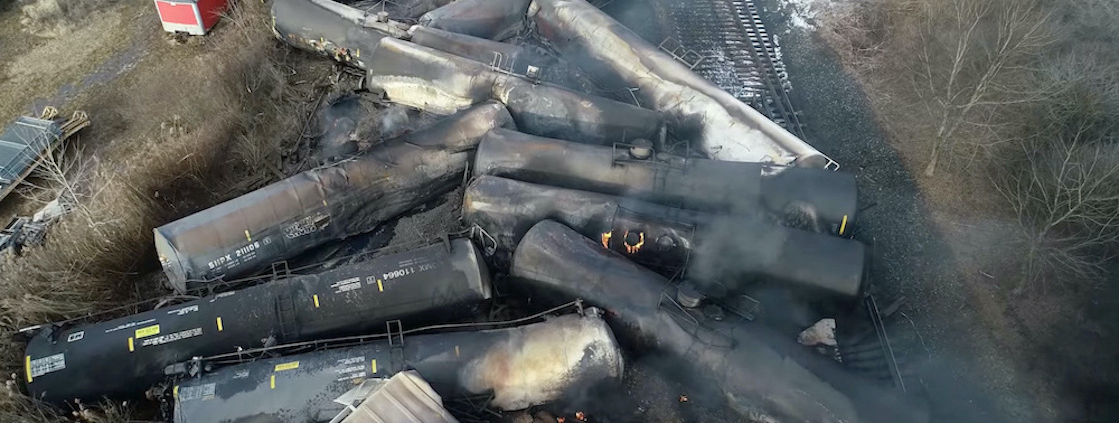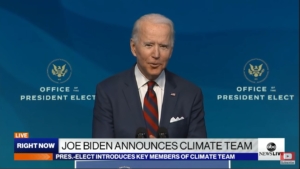Lessons From East Palestine
Below is a look at Delve’s Trends in Energy series, delivered straight to inboxes of energy public affairs leaders looking to stay ahead of key trends affecting the industry. Prepared by Delve’s competitive intelligence experts, these regular insights can help you navigate a constantly shifting political and regulatory landscape. Sign up here to start receiving Trends in Energy.
This Week’s Trend in Brief:
- Nearly three weeks since a Norfolk Southern train derailment in East Palestine resulted in the release of several chemicals, cleanup is ongoing, with EPA ordering Norfolk Southern to handle and pay for all necessary cleanup.
- Since the derailment, the media and social media users have stoked significant, often exaggerated, fear about the potential health and environmental impacts the spill might have on the community and beyond.
- The incident is also putting pressure on regulators, who are now considering new actions regarding the shipment of certain chemicals in response to public concerns and activists seizing the moment to push for more regulation, including on shipping crude oil.
- The incident highlights how important it is for public affairs professionals across the energy industry to prepare for the worst – by identifying friends and allies, understanding where their risks exist, and being armed with the facts – because you can’t wait until the crisis has already happened to build your response.
Digging Deeper:
Nearly three weeks since a February 3rd train derailment near East Palestine, Ohio resulted in the release of several hazardous chemicals, cleanup is ongoing amidst growing public and media scrutiny. Of the approximately three dozen cars that derailed, 11 were carrying hazardous materials, including vinyl chloride, which has been linked to cancer at high levels of exposure. Cleanup could take “at least two months,” and on Tuesday, EPA announced a legally binding order to require Norfolk Southern to handle and pay for all necessary cleanup.
Since the derailment, traditional media, along with social media users, have stoked significant fear about the health and environmental risks associated with the chemical releases, despite assurances from officials that East Palestine’s air and water are safe. Despite assurances from both EPA Administrator Michael Regan and Ohio officials, media and social media users have continued to stoke fear about potential public health risks. For example, The New York Times has repeatedly reported on residents’ skepticism of government testing, while noting the “overwhelming odor.” Vox reporter Benji Jones recently asked “How bad is the East Palestine derailment, really?” concluding, it “is an environmental disaster,” though he did concede “it’s not Chernobyl.” The Hill ran a headline claiming “Environmental health expert says he would not feel safe returning to a home in East Palestine.” Simultaneously, the train derailment led to “a Perfect TikTok Storm” of “misinformation and conspiracy theories.”
Subscribe to Receive Insights
"*" indicates required fields
Under pressure from the media and activists, policymakers are set to consider new regulations for the shipping industry. Even as Transportation Secretary Pete Buttigieg acknowledged the National Transportation Safety Board’s investigation into what caused the accident is ongoing, he claimed “it is not too soon to push toward a change in how industry approaches safety.” Ohio Governor Mike DeWine similarly called for the U.S. Congress to address how trains carrying chemicals are designated, and members of Congress are joining those demanding action. Activists groups, organized by Earthjustice, are using the incident to renew their calls for “regulating requiring electronic brake systems for trains carrying hazardous and flammable material,” including specifically crude oil.
The train derailment highlights how vital it is for public affairs professionals to prepare for the crisis before it happens. Norfolk Southern and the rail industry face significant reputational scrutiny as a result of recent derailments, and opponents of the industry are using the media and public attention to add pressure and achieve long-held policy objectives. While the energy industry does everything it can to prevent similar incidents that can capture the public attention, public affairs professionals need to prepare for the worst before it happens. As Delve CEO Jeff Berkowitz wrote in Forbes, “Today, it’s no longer a matter of if your viral moment will happen, but when. … That’s why organizations must invest time and resources before something bad happens.” For public affairs professionals across the energy industry, that means adopting “a public affairs toolbox that ensures they can respond quickly and effectively to any viral moment,” understanding where risk and vulnerability exists and who their friends and foes are before that risk becomes a reality. It also means marshalling the facts, so that when the crisis hits, public affairs professionals and the organizational leaders who rely on them can quickly and accurately mitigate hysteria and misinformation.
Sign up here to receive weekly analyses of events in the energy industry straight to your inbox.



